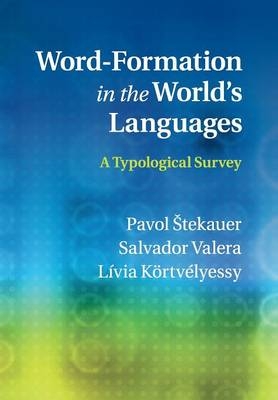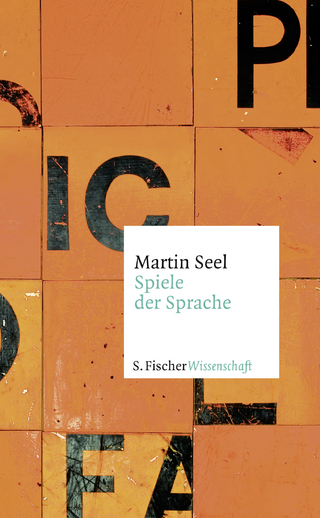
Word-Formation in the World's Languages
A Typological Survey
Seiten
2015
Cambridge University Press (Verlag)
978-1-107-53364-6 (ISBN)
Cambridge University Press (Verlag)
978-1-107-53364-6 (ISBN)
This book fills a gap in cross-linguistic research by being the first systematic survey of the word-formation of the world's languages. Data from fifty-five world languages reveals associations between word-formation processes in genetically and geographically distinct languages.
A pioneering book establishing the foundations for research into word-formation typology and tendencies. It fills a gap in cross-linguistic research by being the first systematic survey of the word-formation of the world's languages. Drawing on over 1500 examples from fifty-five languages, it provides a wider global representation than any other volume. This data, from twenty-eight language families and forty-five language genera, reveals associations between word-formation processes in genetically and geographically distinct languages. Data presentation from two complementary perspectives, semasiological and onomasiological, shows both the basic functions of individual word-formation processes and the ways of expressing selected cognitive categories. Language data was gathered by way of detailed questionnaires completed by over eighty leading experts on the languages discussed. The book is aimed at academic researchers and graduate students in language typology, linguistic fieldwork and morphology.
A pioneering book establishing the foundations for research into word-formation typology and tendencies. It fills a gap in cross-linguistic research by being the first systematic survey of the word-formation of the world's languages. Drawing on over 1500 examples from fifty-five languages, it provides a wider global representation than any other volume. This data, from twenty-eight language families and forty-five language genera, reveals associations between word-formation processes in genetically and geographically distinct languages. Data presentation from two complementary perspectives, semasiological and onomasiological, shows both the basic functions of individual word-formation processes and the ways of expressing selected cognitive categories. Language data was gathered by way of detailed questionnaires completed by over eighty leading experts on the languages discussed. The book is aimed at academic researchers and graduate students in language typology, linguistic fieldwork and morphology.
Pavol Stekauer is Professor of English Linguistics at Šafárik University, Košice, Slovakia. Salvador Valera is Associate Professor of English Morphology and Syntax at the University of Jaén, Spain. Livia Kortvelyessy is a lecturer in English Linguistics at Šafárik University, Košice, Slovakia.
Introduction; Part I. The Field of Word-Formation: 1. The scope of word-formation; 2. Word-formation vs syntax; Part II. Cross-Linguistic Analysis: 3. Word-formation processes combining free morphemes; 4. Word-formation processes with bound morphemes; 5. Word-formation without addition of derivational material and subtractive word-formation; 6. An onomasiological description; 7. Results and discussion.
| Zusatzinfo | 145 Tables, black and white; 14 Line drawings, unspecified |
|---|---|
| Verlagsort | Cambridge |
| Sprache | englisch |
| Maße | 170 x 244 mm |
| Gewicht | 620 g |
| Themenwelt | Geisteswissenschaften ► Philosophie ► Sprachphilosophie |
| Geisteswissenschaften ► Sprach- / Literaturwissenschaft ► Sprachwissenschaft | |
| ISBN-10 | 1-107-53364-3 / 1107533643 |
| ISBN-13 | 978-1-107-53364-6 / 9781107533646 |
| Zustand | Neuware |
| Informationen gemäß Produktsicherheitsverordnung (GPSR) | |
| Haben Sie eine Frage zum Produkt? |
Mehr entdecken
aus dem Bereich
aus dem Bereich
Wie die Menschheit zu ihrer größten Erfindung kam
Buch | Softcover (2022)
C.H.Beck (Verlag)
18,00 €
Macht und Legitimität politischer Sprache im Prozess der europäischen …
Buch | Softcover (2023)
Nomos (Verlag)
74,00 €


